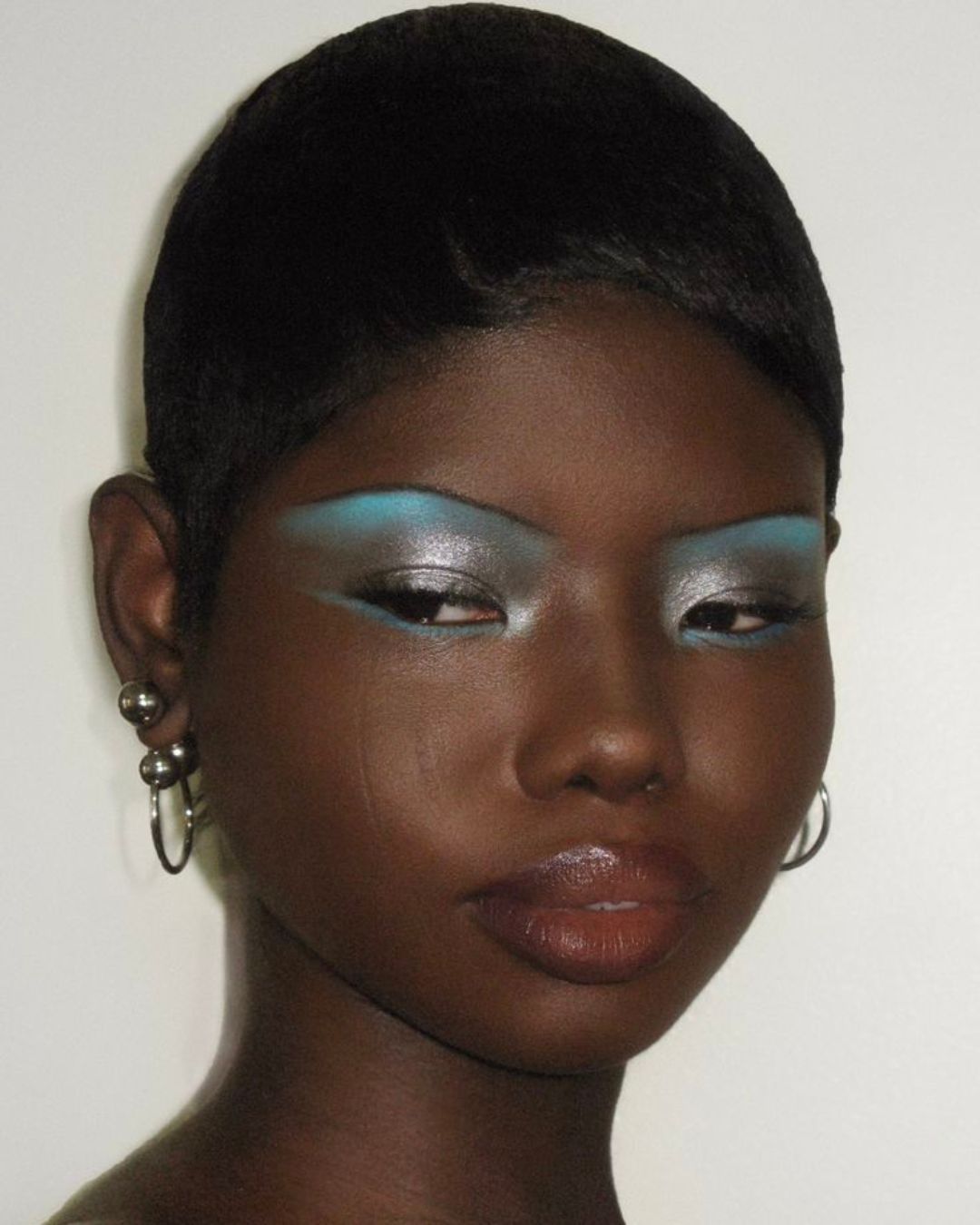
Who’s Afraid of Liv Schmidt? The ban from TikTok, fan advocacy, and the disturbing return of thinness as the supreme value
In the kaleidoscopic realm of social media, where every selfie is a statement and every caption a frequently useless sermon, there’s a new queen of that evergreen cult: thinness. Not wellness, not fitness, but the same sharp, icy aesthetic we hoped had been buried under hashtags like #bodypositivity and #selflove. Her name is Liv Schmidt, and in less than two years, she’s built a controversial and lucrative online empire around her body. She doesn’t sell supplements, nor does she promote official challenges. She doesn’t shout, preach, or offend. She doesn’t need to. Her brand is quiet, icy, elegant—like a shadow on a Manhattan sidewalk. And yet a single post, a phrase whispered like a mantra, “Eat like the best version of you is watching,” is enough to spark a fierce desire in thousands of girls (and not only) to shrink until they vanish.
Who is Liv Schmidt, and why is wveryone talking about her?
Born in 1998, blonde and slender, Liv Schmidt attended the University of Arizona and, according to her LinkedIn profile, works as a social events coordinator for a private family office in New York. But her real fortune was made online. On Instagram, through carefully curated photos where she wears tight Pilates bodysuits (because, in her words, “Basic fit because the accessory is being blonde & skinny”) or enjoys New York nightlife, and on TikTok, where she warns against creamy soups, shows off protein smoothies and snacks made of nuts and seeds, and posts videos explaining what she eats in a day to stay thin or the perfect workout to get sculpted thighs overnight. All of this is wrapped in an aesthetic that blends heroin chic revival, 2012 Tumblr spirit, and wellness guru style, camouflaging an obsession with thinness under the guise of healthy living tips.
The fall from TikTok and the rise to fame
Last fall, the platform that launched her—TikTok—banned her. Not for a single video, but for an accumulation of content deemed “dangerous to public health.” Unofficially, because she embodied the purest form of an old obsession: to be soskinnyas to become almost invisible. But the real turning point came when The Wall Street Journal published an investigation on her. Days later, Schmidt’s profile disappeared. A seemingly permanent ban. In truth, an apotheosis. The ban became part of her branding: censorship as a certificate of authenticity. Her fans rallied behind her, crying “persecution of thin women” and “suppression of individuality.” Schmidt poured gasoline on the fire with a disturbingly clever narrative: “I was banned for being honest,” she wrote in a story. The conservative magazine Evie, a symbol of aestheticized, reactionary femininity, even dedicated a glittering profile to her last April with a telling headline: Banned for Being Honest?. The result? A popularity boom. Today, Schmidt has quadrupled her Instagram followers. According to Air Mail, she makes roughly $130,000 per month thanks to the 6,500 paying members of her Skinni Société, the private club where hunger is an aesthetic. And she’s just signed a contract with Elite Model Look—yes, the same agency that launched Gisele and Naomi.
@poshmama101 Here’s my breakdown on the terrible effects this may have on people everywhere, especially women, in 2025. I want to reiterate, I do not wish to tear someone down to make my point more powerful or for views. I am merely remarking on the danger I foresee this creating both for society and for businesses. #economy #deepdive #educational #womenshealth original sound - Peyton Knight
Skinni Société: the private club where eating less is the goal
The beating heart of Schmidt’s cult is Skinni Société, her exclusive Instagram group, accessible only via a monthly subscription (ranging from $20 to $50). It’s a members-only space for sharing low-calorie diets, challenges on who can consume fewer calories, and digital confessions of hunger and compulsive control. It’s not officially pro-ana. It’s worse. It’s a high-definition reboot. Gated access, closed community, perfectly curated look, Parisian-lounge vibes with candles and lo-fi jazz. But behind the polished self-improvement aesthetic lies a constant competition: who eats less, who weighs less, who lives the most “slim” lifestyle. As revealed by an investigation by The Cut, former members have reported receiving “compliments” for skipping meals and being subtly encouraged to “try harder” if they gained weight, or to endure it if they reported dizziness, fatigue, or hair loss. A silent competition where those who get closest to the “ideal body” (strictly XS, bony shoulders, concave stomach) win likes, attention, and the occasional shoutout from Schmidt herself.
@yourdreamgirlfromheaven Like wow you look like you take care of yourself #fakebody #selflove #dreamgirl #livschmidt #diet #model #skinnytok #lawofattraction #blessing #pilates #thewizardliz #manifesting sonido original - Abelix
Schmidt’s subtle and seductive influence
Schmidt’s rhetoric differs from obsessive fitness influencers or clean eating gurus. It’s more nuanced. And that makes it more seductive. She doesn’t talk about carbs to avoid, or demonize sugar or dairy. She says: “Eat whatever you want. Just as little as possible.” Or, “You’re a smart girl. You just need to stop overeating and start eating less.” It’s rhetoric that doesn’t command or prohibit—but gently nudges. It’s not coercion. It’s disguised as empowerment, turning the act of not eating into a gesture of control, self-narration, and beauty. That’s where her viral power lies. It’s not the overt violence of old pro-ana forums, but the seduction of normalized thin privilege. The thin body as a social, aesthetic, even moral passport. And anyone who dares to question it ends up not only against her fans but an entire system that still rewards, pampers, and fetishizes skinniness.
@chaotickymopoleia Skinny Strategies for a Total Body Makeover - by Liv Schmidt on YT
original sound - Musicッ
The failure of Body Positivity (and what replaced it)
What happened to real body positivity? Not the pastel-colored ad version. It’s been replaced by something sneakier: a pseudo-feminist rhetoric that recycles the old logic of self-discipline and repackages it as personal choice. And Schmidt is its perfect ambassador. But how, after years of celebrating all bodies and declaring that bikini season doesn’t exist—after the rise of plus-size models, inclusive brands, and #NoFilter campaigns—did someone like Liv Schmidt thrive undisturbed? The answer likely lies in the deep ambiguity of the digital world, where aesthetics matter more than messages. But most of all, it lies in Schmidt’s strategy. She doesn’t scream “get skinny.” She looks at you, green smoothie in hand, and whispers: “Be elegant. Be disciplined. Be the best version of yourself.” And she does it while earning more than a plastic surgeon, collecting interviews from conservative magazines, and signing top model contracts. She’s not a rebel. She’s a strategist. And that makes her more dangerous—especially to the youngest audiences.
The new grammar of hunger
Liv Schmidt didn’t invent anything. But she perfected the format. She updated the aesthetic of bodily control for an era that demands empowerment in every gesture—even the self-destructive ones. And the fact that she succeeded (and profitably) says more about us than about her. The 23-year-old American is just the most visible (and best-paid) face of a much broader trend. On TikTok, What I eat in a day videos with fewer than 800 calories still go viral, #bodychecking hides behind wellness routines, leggings are made for thigh gap, and the eerie return of the “red carpet diet” is back. All in reassuring, minimalist, filtered packaging. The cult of thinness never died. It just got a makeover. Now it’s called discipline, clean eating, slow living. But the background music is still the same: If you’re thin, you’re better. More desirable. More followed. More algorithmically compatible.
Who’s afraid of Liv Schmidt?
Everyone. Because Liv Schmidt isn’t a system glitch. She’s the perfect product of it. Her ban isn’t a solution; it’s a Band-Aid on a fracture. As long as bodies are still trending topics, and platforms continue to reward this philosophy—fuelling potential eating disorders—there will always be new Schmidts ready to rise. Thinner. More curated. Better at disguising themselves as inspiration. So maybe the real question isn’t who’s afraid of Liv Schmidt. It’s whether we have the courage to admit we’re still far from self-acceptance—from loving our bodies, no matter their shape or weight.

























































